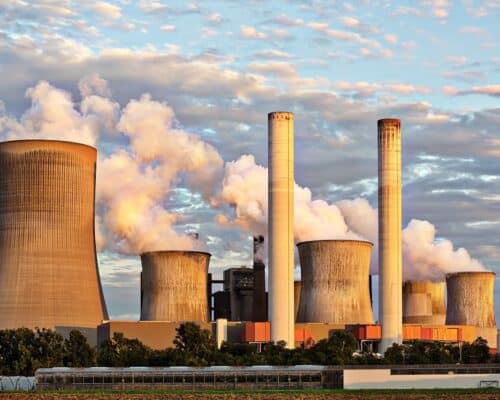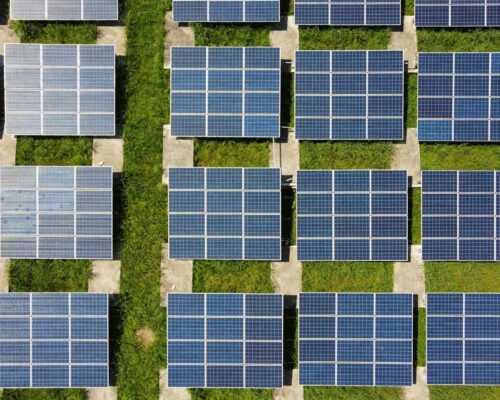How the 2024 US Presidential Election Might Change America’s Climate Policy
30 October 2024 – by Viktor Tachev
The upcoming US presidential election 2024 will have an influential impact on how the world deals with the climate. Former US President Donald Trump has famously referred to climate change and global warming as “a hoax,” while his opponent, Vice President Kamala Harris, has acknowledged climate change as “an existential threat,” promising to continue the climate leadership demonstrated by the previous administration. Now that the 2024 US election is around the corner, analysts view the election result as potentially being a turning point for US climate policy.
Given the scale of the US economy and its influence on global geopolitics, as well as its energy transition efforts and overall ability to slow climate change, the international community is awaiting the US presidential election results with bated breath.
Where US Presidential Candidates Kamala Harris and Former President Donald Trump Stand on Climate and Energy
A quick look at the supporters of the two candidates indicates what to expect should either come into office. While environmental groups and climate activists stand behind Vice President Harris, Trump is backed by the oil and gas industry. A climate change denier and outspoken critic of clean energy projects, he aims to continue from where he left off after making way for President Joe Biden to take charge in 2021.
So far, his opponent Harris has mostly left experts guessing about her energy and climate strategy. Yet, experts say she is likely to continue advocating for more green technology, anti-pollution and climate-friendly policies, as demonstrated during her mandate as the attorney general of California and as vice president within the President Biden administration.
While in terms of concreteness and details, the strategies of both candidates remain somewhat ambiguous. However, their stances on crucial climate and energy topics already reveal significant differences.
On Clean Energy Projects and Green Technologies
Under the Democratic Party’s leadership, the US has significantly accelerated its clean energy transition. In 2024, for example, nearly all new power generation capacity will come from renewables and battery storage.
Harris actively supports renewable energy projects. During her tenure as vice president in the Biden administration, she worked to promote offshore wind energy and other renewables with lease auctions and subsidies. She also cast a decisive vote for the landmark climate legislation, the Inflation Reduction Act (IRA), the most ambitious green framework in US history that aims to provide billions in clean energy subsidies and investment to help fight climate change. As a senator from California, she was also an early supporter of the Green New Deal – a range of measures for accelerating green energy adoption in the country. During Harris’ 2019 presidential campaign, she backed a potential end to sales of new gasoline-powered cars by 2025, although she backtracked later.
If Harris wins, she is likely to build on the Biden administration’s climate legislation, promoting clean energy investment and providing tax incentives and subsidies for wind, solar, green hydrogen and electric vehicles, with a particular focus on low-income communities.
On the other hand, her Republican opponent, Donald Trump, backed by oil company donations, has been sending mixed signals. On the one hand, he has been an outspoken critic of clean energy but has also mentioned being a “big fan” of solar power. He has criticised EVs but also admitted to being a “big fan” after Tesla’s head, Elon Musk, endorsed his campaign.
On Green Policies
Some analysts note that neither candidate is proposing policies as transformative as the ones enacted over the past several years. However, traction on the policy front is likely.
For example, Trump has spoken about ending the IRA and the measures under it, including the existing USD 7,500 tax credit for EV purchases. Additional measures that could be affected include clean energy subsidies and regulations on coal-fired power plants and vehicle emissions introduced under the Biden administration. These pledges come despite Goldman Sachs’ estimates that keeping the IRA in place would generate over USD 3 trillion in public and private investment in clean technologies by 2030. According to a Wood Mackenzie analysis, a Trump presidency would slash US energy transition investments by USD 1 trillion by 2050.
Experts also note that the impact of Trump’s potential federal policy changes might be lessened, since many US states have already implemented their own renewable energy standards and incentives. California, for example, aims for 100% clean electricity by 2045, while New York targets 70% by 2030.
According to Alexander Stevens, CEO and co-founder of Greenomy, there will be little impact on ESG policies and regulations regardless of which party wins the election. During a panel at the Climate Change Summit 2024 conference, the expert reasoned his opinion with the fact that the IRA was already passed by Congress while California and several other states were already advancing ESG policies and regulations. The private industry and big corporations were also in favour of stricter ESG standards and reporting, he noted.

Based on their records, Harris is likely to build on the legislation and regulations passed under the current administration.
On Fossil Fuels
Both candidates have expressed a pro-gas stand. Regardless of who wins, experts say the new president will reverse Biden’s decision to pause key LNG export permits, although in different ways. According to S&P analysts, а potential Trump administration will start approving new gas projects immediately, while a Harris-led cabinet is more likely to get things back to the way they were before, with potential additional scrutiny or new criteria.
During the September presidential debate, Harris said she backed diverse energy investments, adding that she would not ban fracking. However, she hasn’t offered a detailed gas policy, and there seems to be less clarity on her potential approach. If her tenure as vice president is any indication, the signs of restricting fossil fuel use are weak. In fact, US output has reached record highs, with leading energy companies Exxon and Chevron making record profits and a series of new fossil fuel projects launched. Unlike European governments, Biden’s administration also didn’t impose a windfall tax on their earnings.
However, it is worth noting that Harris also has a track record of backing legislation to tackle the climate crisis, supporting clean energy projects and winning multibillion-dollar settlements against oil companies, such as Chevron and BP.
As a 2020 presidential candidate, she also introduced a USD 10 trillion plan calling for net-zero emissions by 2045 and a carbon-neutral electricity sector by 2030. She also mentioned a potential “climate pollution fee”. In addition, she pledged to end federal support for the fossil fuel industry and called for a carbon tax.
Trump, on the other hand, has regularly stated his support for the fossil fuel industry and consistently repeated that he would stick to the energy mantra: “Drill, baby, drill!.” In addition, his campaign has been publicly endorsed by big oil bosses, and he promised to approve LNG projects and end President Biden’s pause from day one.
On Climate Change and the Environment
Trump has repeatedly questioned the science of climate change and doubted whether human activity is responsible. During his term as US president from 2017 to 2021, Trump withdrew the United States from the Paris Agreement. While the country rejoined under Biden, Trump vowed to pull out again should he win in November.
The Trump administration also rolled back nearly 100 federal rules and environmental protection measures, including regulations to curb methane emissions from oil and gas infrastructure, requirements to limit water pollution caused by fracking and to factor carbon emissions into federal decision-making. He also sought to open nearly all US waters and protected lands to oil and gas drilling, including in Alaska’s Arctic National Wildlife Refuge. If he were to win again, he pledged to expand domestic fossil fuel production significantly, overhaul Biden’s clean energy initiatives and withdraw the United States from major global climate efforts.
Harris, on the other hand, has described the climate crisis as a threat. According to Scientific American, Harris says she will continue the leadership shown by the current administration, which has undertaken “the most substantial climate action of any president”. During COP28 in Dubai, United Arab Emirates, Harris announced a USD 3 billion pledge to the Green Climate Fund to help developing countries address climate change.
While, unlike Biden, Harris has barely mentioned climate change since taking over as the Democratic nominee earlier this year, analysts suspect this may be intentional, since climate voters already recognise her campaign as their go-to choice. Furthermore, with the move, Harris is believed to be trying to avoid alienating oil and gas industry supporters, especially in crucial fossil fuel and manufacturing-dependent states.
Where To Next For the Global Energy Transition and Climate Efforts After the US Presidential Election 2024
The US is the biggest historical source of greenhouse gas emissions, the second-highest current emitter and the biggest oil and gas producer and exporter. As emissions continue to increase and weather disasters become more severe and frequent, the decisions made during the next presidential term in the US will be critical for global climate progress by 2030.
The outcome of the election will also ripple through Asia’s geopolitical, energy and social areas. For example, one area that can be impacted is the economic ties of the US with China over green technology imports. For Southeast Asia, the most vulnerable and significantly affected region by climate change, the decisions of US voters will matter greatly, since they will significantly impact the world’s efforts to tame the climate crisis.
At the beginning of November, Americans will cast their votes with the memories of the devastation caused by hurricanes Helene and Milton still fresh in their minds, knowing all too well that doubling down on fossil fuels and holding back the clean energy transition will put Paris Agreement climate goals out of reach. Recent polls have revealed that Americans increasingly favour climate change action, especially the younger generations. For example, around two-thirds of Americans think global warming is affecting weather in the US. A similar proportion support policies against fossil fuels and in favour of renewables.
As a result, the climate change topic is a crucial lever to help candidates swing the odds in their favour. While it is clear that climate activists would be more at peace with a Harris-led United States, it is essential to note that, regardless of who wins and what their energy and climate plans are, the key would be passing bills through Congress – something that has often proved challenging.
by Viktor Tachev
Viktor has years of experience in financial markets and energy finance, working as a marketing consultant and content creator for leading institutions, NGOs, and tech startups. He is a regular contributor to knowledge hubs and magazines, tackling the latest trends in sustainability and green energy.
Read more








